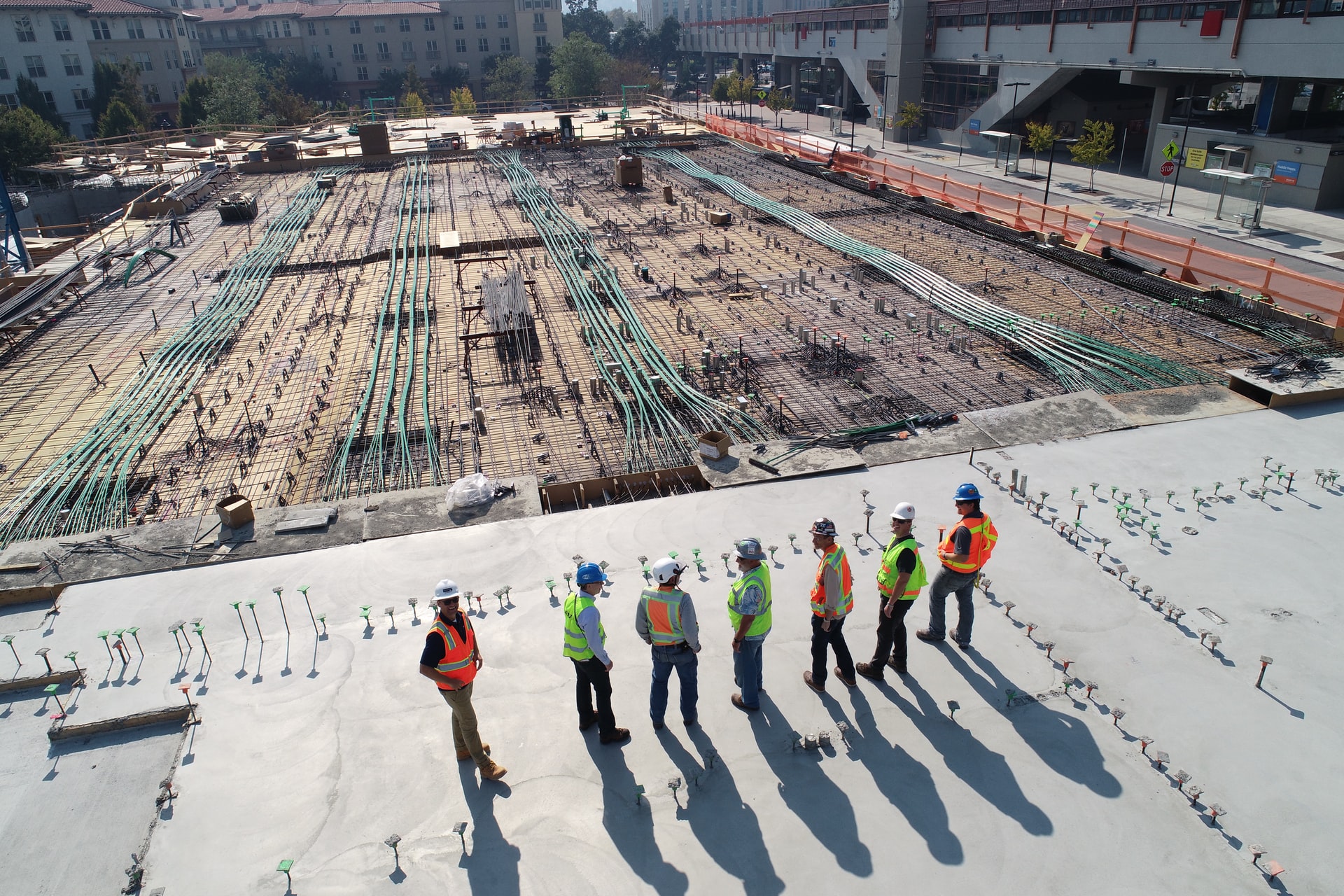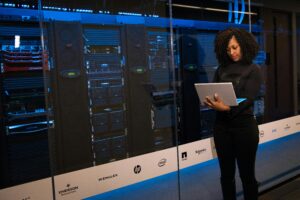Artificial Intelligence is on track to revolutionize the construction industry like few technologies before it. But how can it be applied to heavy equipment?
For several years now, artificial intelligence (AI) has been gaining in capability and reliability as the technology is developed and improved. Today, AI in construction is becoming more and more commonplace, offering a wide variety of advantages to construction professionals and their clients. In particular, AI has capabilities that can greatly improve operations on construction sites.
Improved Safety
Safety is a top concern in construction at all levels, so any new safety innovations are welcomed to the industry. AI can make a significant impact on a site’s safety protocols and tools. There are a few different approaches for it, as well.
One cutting-edge AI application on construction sites is smart surveillance, often with the help of drones. Camera feeds are sent through an AI analysis system that scans footage for anything suspicious on-site. If someone appears to be climbing over a fence, for example, the AI can detect it and alert site security personnel. This technology can run 24/7 as well, allowing for monitoring at crucial low-activity times, like overnight.
Similarly, many construction companies are utilizing drones to keep an eye on workers during the day to make sure everyone is working safely. A drone can fly around collecting camera footage of site activity, which an AI scans for signs of danger. AI is even being used to identify workers who aren’t equipped with the proper PPE while on the job.
However, workers are often not intentionally doing something unsafe but accidentally slip into unsafe conditions, which a drone can quickly be used to remotely discover. This is helpful for sites where workers may need to complete tasks in hazardous conditions, allowing safety officers to keep an eye on them without putting anyone else in danger.
The same AI-drone collaboration technology can be used to assess sites for danger prior to workers arriving on-site, as well. For example, AI software could scan imagery for things like fall hazards or exposed wiring.
Smart Maintenance
Maintenance is a key part of everyday life in construction. Even the best-handled equipment will need a tune-up every now and then. AI can make maintenance a significantly safer and easier process, though.
Broken equipment poses a serious safety risk, for equipment operators as well as the people around them. It isn’t always obvious or easy to identify when a piece of equipment is in need of repairs, either. For example, undercarriages on heavy equipment require regular inspections but are virtually impossible to see from a glance at the typical construction vehicle.
AI can detect and notify about malfunctioning equipment instantly, though, with the help of connected IoT sensors. Pressure or temperature sensors collect information about equipment in real-time, tracking features that could indicate performance problems. Meanwhile, the AI analyzes this data and searches for inconsistencies or any fluctuations that hint that something could be amiss. When such a fluctuation is detected, the AI alerts any connected users that the equipment should be inspected.
This kind of AI maintenance tracking makes it easy to avoid large, expensive repairs when something becomes critically broken. Instead, the AI can give regular alerts any time a part is running inefficiently or underperforming, allowing for minor tune-ups that are quicker and far less costly to execute. The best part about this technology is that it doesn’t require brand-new equipment with built-in sensors. There are specially made AI sensor packages that can be integrated into existing equipment for a cutting-edge update.
Cost Reduction
Saving money whenever possible is extremely helpful in construction. It’s easy for expenses to pile up during a project. In fact, an estimated 85% of projects exceed their budget every year. AI can help reduce costs in a few different ways.
One common issue that leads construction projects to go over budget is a buildup of countless little things that were done inefficiently or in a way that wasn’t cost-effective. Construction AI provider ALICE Technologies is changing that for contractor teams around the world by helping them discover every possible way to save money on their project. The AI uses data about the building and construction process to identify the most cost-effective methods and strategies, resulting in savings of tens of millions of dollars. Technology like this uses a whole-building approach to AI cost saving.
AI can be applied to individual tasks or areas to save money, as well. For example, AI could help project or site managers save money on fuel and materials by tracking the usage of those resources around the site. Any inefficiencies can be pinpointed and addressed so that fewer resources go to waste, reducing the amount of money that needs to be spent on them.
Similarly, the above-mentioned maintenance capabilities of AI can save construction companies significant quantities of money, as well. With AI for predictive maintenance, sites avoid costly repairs and reduce the money lost by extensive downtime from lengthy repairs.
Increased Efficiency
Efficiency is one of AI’s greatest talents. The nature of how computers work makes them extremely effective at completing tasks in the most time-efficient manner possible. This is one of the core reasons why robotic process automation (RPA) has become so popular in construction, among numerous other industries. Companies can take tasks that would otherwise be slow, repetitive, and even dangerous for employees and delegate them to an AI robotic system that can work much quicker without the risk of human error or lapses of attention.
The construction industry faces an especially high demand for efficiency solutions right now because of the ongoing labor shortage. AI can help, and developers have already made great strides to automate certain parts of the industry. Perhaps the most exciting of these innovations is the invention of autonomous construction vehicles, which are gaining ground around the world.
Experts in the industry are heralding AI-driven construction vehicles for their effectiveness at meeting demand without straining the limited workers available. One construction robotics company leader commented to CNBC that with the help of autonomous vehicles, “You can now collapse your construction timeline so you can knock out work overnight so that it’s ready for your human workers in the morning to speed them along.”
This level of functionality is extremely valuable to construction companies struggling to support their workers while also meeting demanding timelines.
Building for Tomorrow With AI
While some fear that AI will leave millions unemployed, this is far from reality in the construction industry. AI is providing construction companies with the solutions they need to keep up with the ever-increasing demand for the advanced new structures of tomorrow. Workers can do their jobs with less stress and strain with AI and robotics helping out around sites, which are kept safe by AI-powered cameras. AI-enabled construction equipment is bringing this crucial industry into the future, one project at a time.
Emily Newton is the Editor-in-Chief of Revolutionized Magazine. She has more than five years of experience writing industrial topics for the construction, manufacturing, and supply chain industries.










